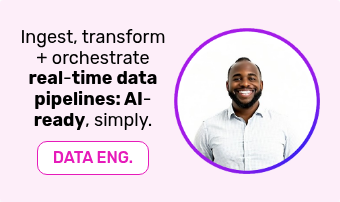Artificial Intelligence (AI) agents represent a significant leap in the evolution of technology, driving transformative changes across industries.
As autonomous systems capable of perceiving their environment, analysing data, and taking actions to achieve specific goals, AI agents are reshaping how businesses operate, decisions are made, and challenges are addressed. This article explores the concept of AI agents, their evolution, and their potential to revolutionise industries.
Need comprehensive advice? Read our complete guide to AI Agents.
What Are AI Agents?
At their core, AI agents are software entities designed to perform tasks autonomously. Unlike traditional software, which operates within predefined rules, AI agents are equipped with the ability to learn, adapt, and make decisions based on real-time data. They sense their environment, process inputs, and act to achieve specific objectives, often improving over time through machine learning.
AI agents differ from simpler tools like chatbots in that they operate beyond conversational interfaces. While chatbots typically follow scripted responses, AI agents can perform complex tasks such as automating workflows, optimising operations, or even making predictions. This versatility makes them invaluable across various applications.
The Evolution of AI Agents.
The journey of AI agents began with early rule-based systems in the 1980s. These systems relied on predefined instructions to execute tasks. While ground-breaking at the time, they lacked the flexibility and adaptability required for dynamic environments.
The advent of machine learning in the 2000s marked a turning point. AI agents began incorporating algorithms that allowed them to learn from data rather than relying solely on pre-programmed rules. This enabled them to handle more complex scenarios and respond intelligently to unforeseen challenges.
In recent years, advancements in deep learning, natural language processing (NLP), and edge computing have further enhanced AI agents. Today’s AI agents can operate in real-time, leverage vast datasets, and even function independently on decentralised devices. These innovations have opened doors to new possibilities, from autonomous vehicles to personalised healthcare solutions.
Transforming Industries with AI Agents.
AI agents are already making a profound impact across various sectors. Here are some notable examples:
1. Manufacturing.
AI agents optimise production lines by monitoring equipment, predicting maintenance needs, and minimising downtime. For instance, predictive AI agents can analyse sensor data from machinery to detect potential failures before they occur, saving time and resources.
2. Healthcare.
In healthcare, AI agents assist in diagnostics, treatment planning, and patient monitoring. By analysing patient data, these agents can identify early signs of diseases, suggest personalised treatments, and even provide round-the-clock monitoring for chronic conditions.
3. Customer Service.
AI agents go beyond chatbots by integrating with customer relationship management (CRM) systems to provide personalised experiences. They can analyse customer history, predict needs, and offer proactive solutions, enhancing satisfaction and loyalty.
4. Finance.
In the financial sector, AI agents are employed for fraud detection, risk management, and algorithmic trading. These agents analyse market trends and transaction patterns in real-time, helping financial institutions make informed decisions and mitigate risks.
5. Retail.
AI agents in retail enhance inventory management, optimise supply chains, and personalise marketing efforts. By analysing consumer behaviour, they help businesses deliver targeted promotions and improve the shopping experience.
Want to know more about the challenges of 'Integrating AI Agents into Your Business: Challenges and Solutions'? Read our blog.
Key Advantages, Challenges + the Future for AI Agents.
The adoption of AI agents offers several benefits, including:
- Autonomy: AI agents operate independently, reducing the need for human intervention in routine tasks.
- Efficiency: By automating repetitive processes, they increase productivity and reduce operational costs.
- Scalability: AI agents can handle growing workloads without requiring proportional increases in resources.
- Adaptability: Their ability to learn and improve ensures they remain effective in changing environments.
- Real-Time Decision-Making: With access to real-time data, AI agents can make faster, more accurate decisions.
Challenges and Considerations.
While AI agents offer immense potential, their adoption comes with challenges:
- Integration: Implementing AI agents within existing systems can be complex and time-consuming.
- Data Privacy: Ensuring data security and compliance with regulations is critical.
- Ethical Concerns: The deployment of autonomous systems raises questions about accountability, transparency, and job displacement.
- Cost: Developing and maintaining AI agents can require significant investment, though the long-term benefits often outweigh the initial costs.
The Future of AI Agents.
The evolution of AI agents is far from over. As technology advances, we can expect:
- Increased Collaboration: AI agents will work seamlessly with humans, augmenting their capabilities rather than replacing them.
- Greater Personalisation: Enhanced algorithms will enable AI agents to deliver highly personalised solutions across industries.
- Edge AI: AI agents operating on edge devices will reduce latency, enhance privacy, and enable real-time decision-making in decentralised environments.
- Universal Accessibility: AI agents will become more accessible to businesses of all sizes, democratising their benefits.
Conclusion.
AI agents are more than just a technological innovation; they are a transformative force shaping the future of industries.
By combining autonomy, adaptability, and intelligence, they empower businesses to solve complex challenges and seize new opportunities. As AI agents continue to evolve, their impact will only grow, paving the way for a future where autonomous systems are an integral part of our lives.
Now is the time for businesses to explore how AI agents can drive success + Rayven can help you to start building your very own AI agents (or do it for you!) that utilise your data, update in real-time + make better decision-making, simple. Speak to us today to find out more and get started.





















